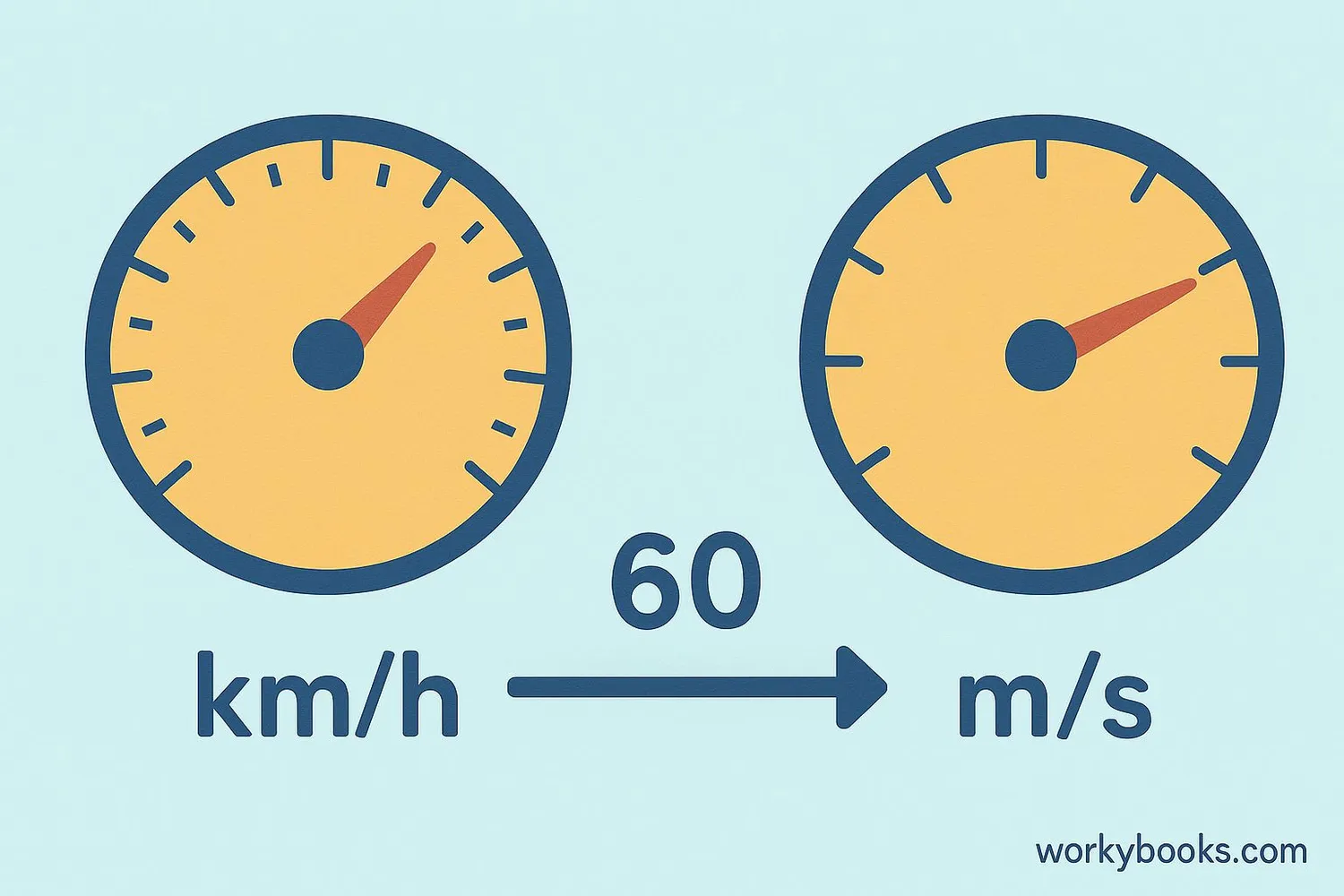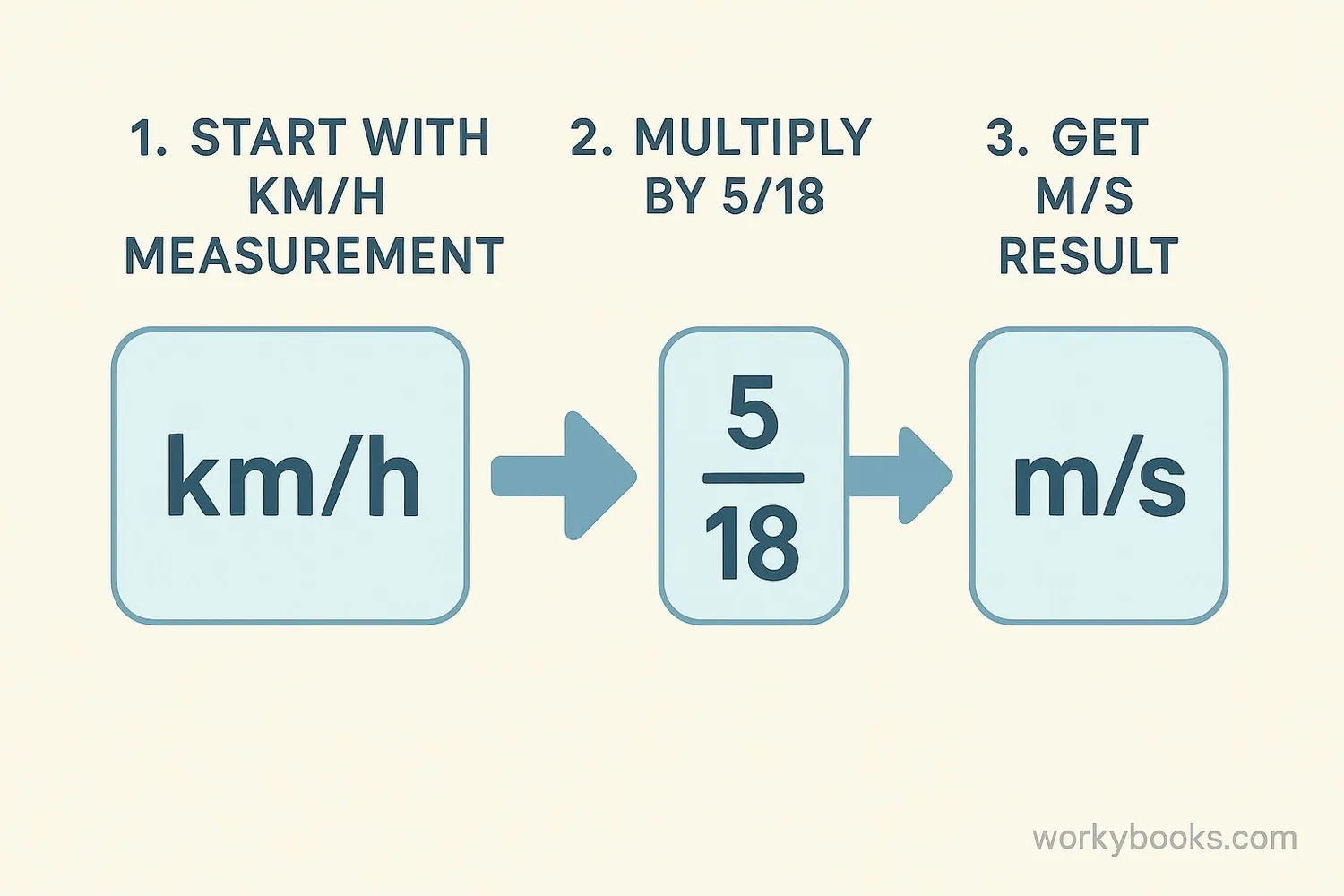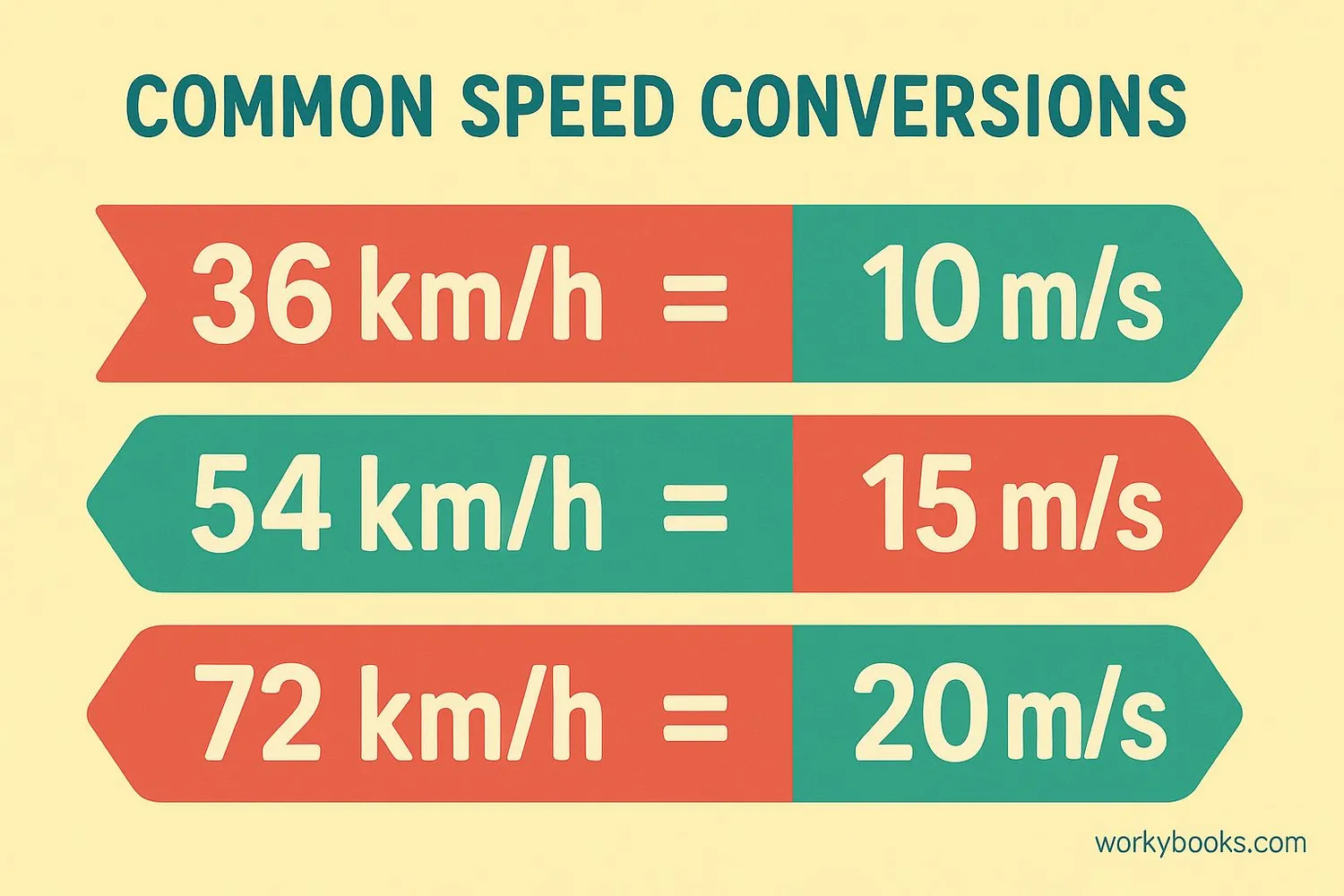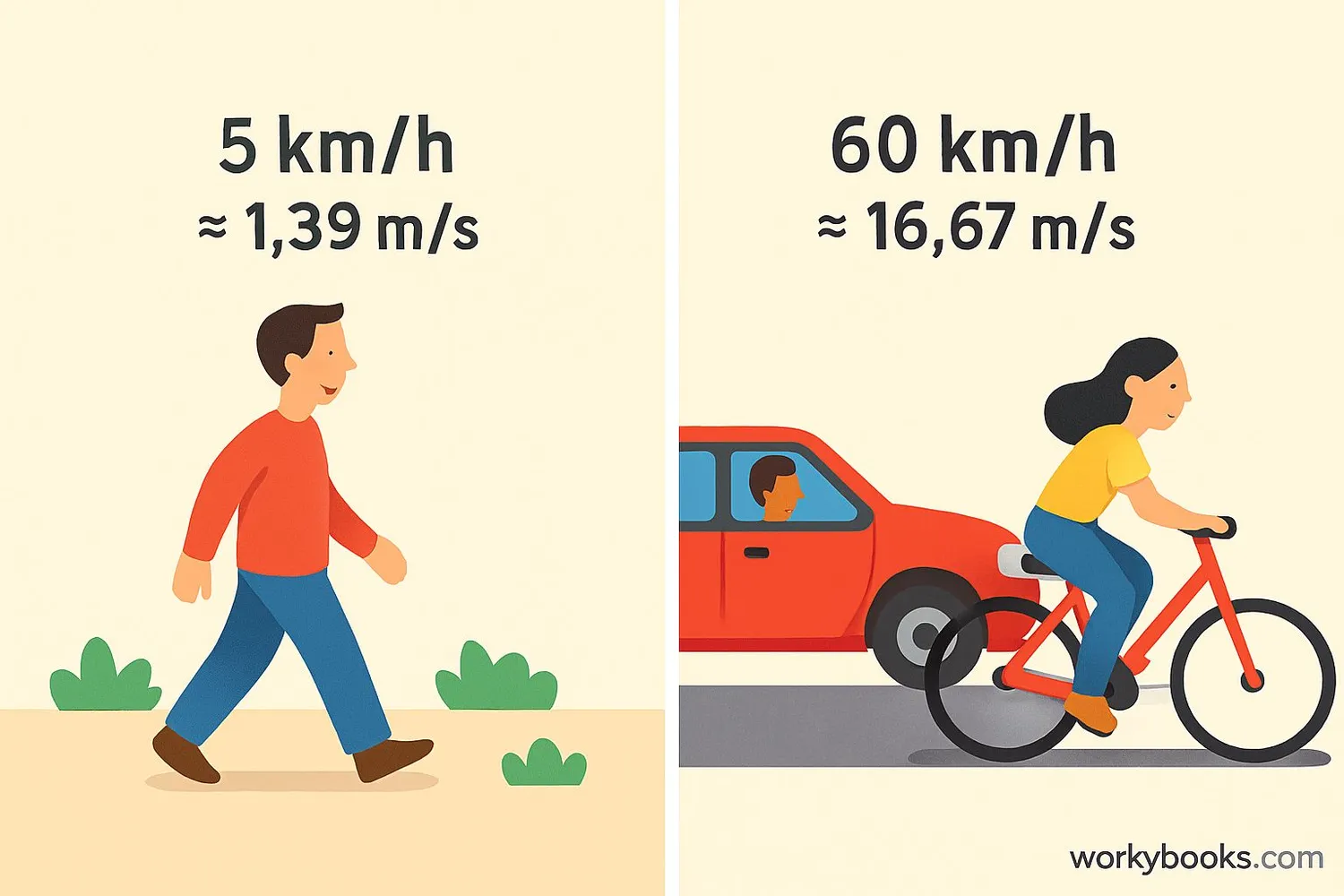Kilometers per Hour to Meters per Second (km/h to m/s) - Definition, Examples, Quiz, FAQ, Trivia
Learn to convert between different speed measurements with easy explanations and practice activities
What is Speed Conversion?

Speed conversion means changing a measurement from one unit to another. In this lesson, we're learning how to convert between kilometers per hour (km/h) and meters per second (m/s).
Why do we need to convert? Different situations use different measurement units. Vehicles often show speed in km/h, while scientists might use m/s for experiments. Understanding both helps us compare and understand speed measurements.
One kilometer per hour equals approximately 0.27778 meters per second. To convert km/h to m/s, we multiply the number of km/h by 5/18 (or 0.27778). Understanding this relationship helps us solve real-world problems involving speed.
Key Concept
1 km/h = 5/18 m/s ≈ 0.27778 m/s. This relationship is the foundation for all km/h to m/s conversions.
How to Convert km/h to m/s

Converting kilometers per hour to meters per second is simple once you remember the conversion factor:
Conversion Formula
To convert any measurement in km/h to m/s, multiply the number of km/h by 5/18 (or approximately 0.27778).
Example: Convert 72 kilometers per hour to meters per second
Step 1: Start with the measurement in km/h → 72 km/h
Step 2: Multiply by 5/18 → 72 × 5/18
Step 3: Calculate the result → 360/18 = 20 m/s
So 72 kilometers per hour equals 20 meters per second.
Remember
When converting km/h to m/s, your answer will be a smaller number because meters per second are smaller units than kilometers per hour.
km/h to m/s Conversion Charts

Conversion charts help us quickly find equivalent measurements without calculating each time. Here are two useful charts for converting km/h to m/s:
Common Speed Conversion Chart
| Kilometers per Hour (km/h) | Meters per Second (m/s) |
|---|---|
| 18 km/h | 5 m/s |
| 36 km/h | 10 m/s |
| 54 km/h | 15 m/s |
| 72 km/h | 20 m/s |
| 90 km/h | 25 m/s |
| 108 km/h | 30 m/s |
Detailed Conversion Chart
| Kilometers per Hour (km/h) | Meters per Second (m/s) |
|---|---|
| 5 km/h | 1.39 m/s |
| 10 km/h | 2.78 m/s |
| 20 km/h | 5.56 m/s |
| 30 km/h | 8.33 m/s |
| 40 km/h | 11.11 m/s |
| 50 km/h | 13.89 m/s |
| 60 km/h | 16.67 m/s |
Chart Tip
Notice how each additional 18 km/h adds 5 m/s? You can use this pattern to estimate conversions!
Real-World Examples

Let's practice conversion with some real-world examples:
Example 1: A person walks at 5 km/h. What is their speed in m/s?
Solution: 5 × 5/18 ≈ 1.39 m/s
Example 2: A car travels at 60 km/h. Convert this speed to m/s.
Solution: 60 × 5/18 ≈ 16.67 m/s
Example 3: A cyclist rides at 25 km/h. What is this speed in m/s?
Solution: 25 × 5/18 ≈ 6.94 m/s
Example 4: A train moves at 90 km/h. Convert this to m/s.
Solution: 90 × 5/18 = 25 m/s
Practice converting speed measurements you encounter - vehicles, athletes, or even animals!
Conversion Tip
To convert m/s back to km/h, multiply by 18/5 (or 3.6) instead of dividing.
Conversion Practice Quiz
Test your conversion skills with this 5-question quiz. Choose the correct answer for each question.
Frequently Asked Questions
Here are answers to common questions about km/h and m/s conversion:
Speed Trivia
Discover interesting facts about speed measurements:
Origin of Speed Units
The meter was originally defined in 1793 as one ten-millionth of the distance from the equator to the North Pole. The kilometer and units like km/h were derived from this measurement.
Fastest Land Animal
The cheetah can run at speeds of 112-120 km/h (70-75 mph), which is about 31-33 m/s. This incredible speed helps it catch prey in short bursts.
Earth's Rotation
The Earth rotates at about 1670 km/h at the equator. That's approximately 464 m/s! We don't feel this speed because it's constant and the atmosphere moves with us.
World's Fastest Train
The Shanghai Maglev train in China is the world's fastest commercial train, reaching speeds of 431 km/h (about 120 m/s). That's faster than most small aircraft!





